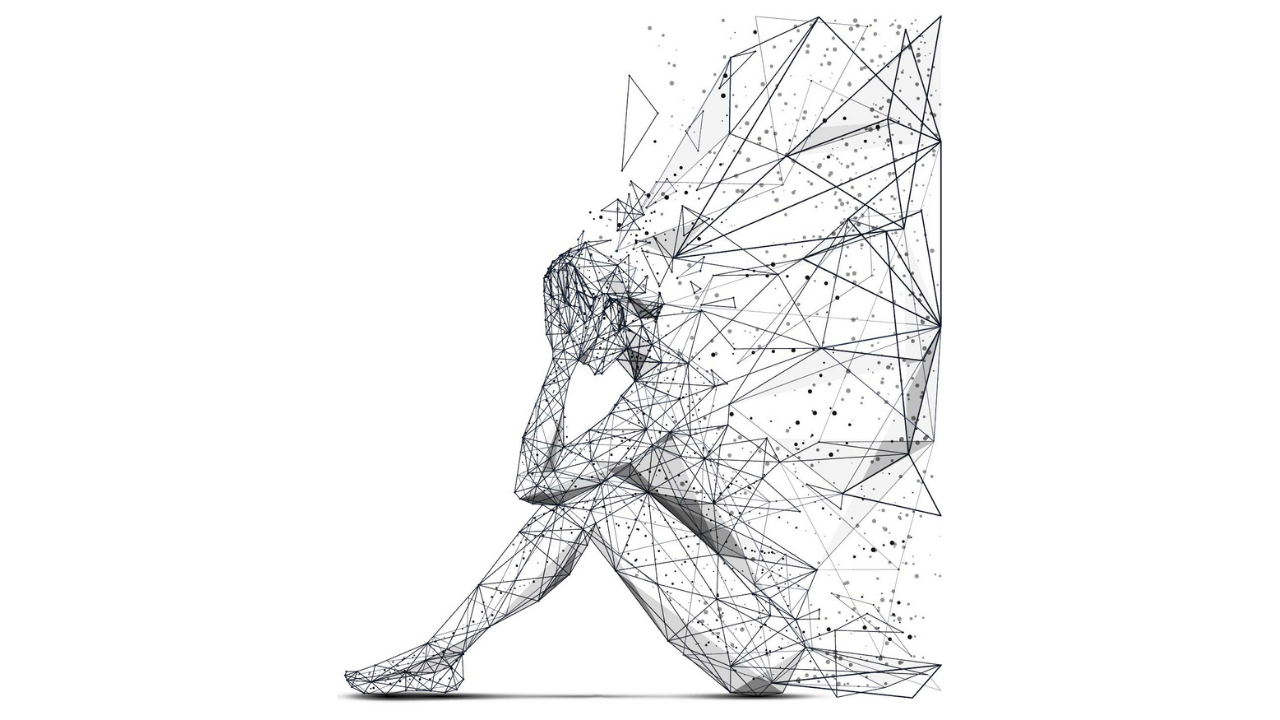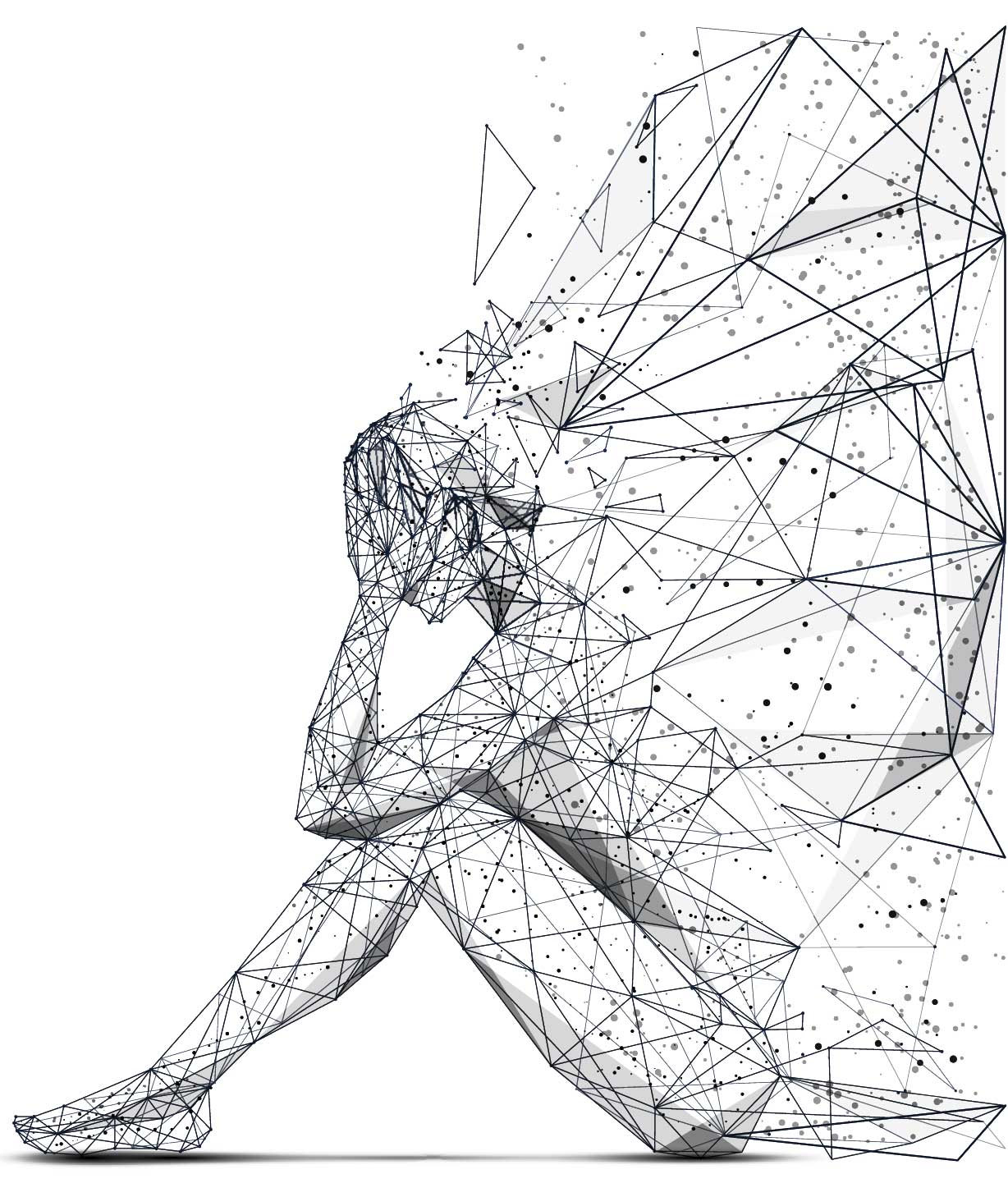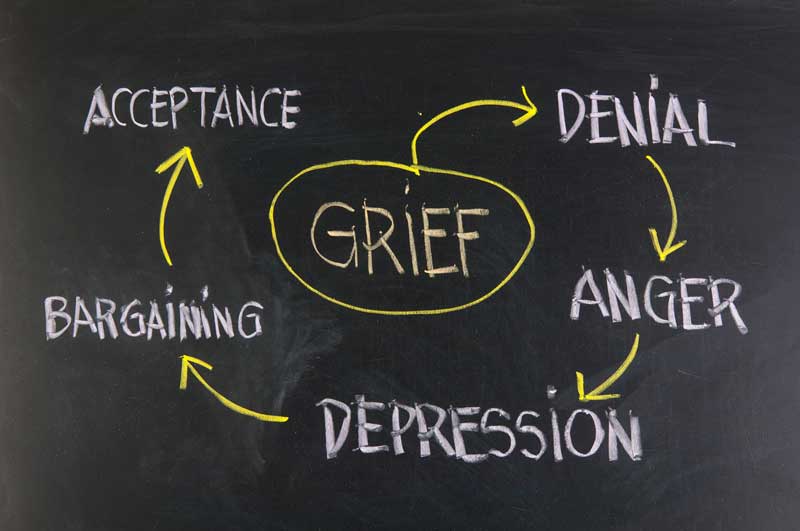The Low Down On Grief
Nov 11, 2021
Grief is said to be the inability to accept what is happening around us. It is the hallmark of change, grace, and ease we receive through the process of letting go. Allowing us to move through change in a way that creates release, cutting back and letting go so we can ultimately achieve freedom and development of the Self with a balanced sense of moving forward.

Metal element energies modulate our ability to let go which all hinges on our capacity to build and strengthen bonds with people through connection, shared concepts, alignment and allegiances. All of these experiences allow us to deeply identify with others and build self-awareness through our relationships; we teach ourselves who we are. We learn to take in the ideas, opinions, feelings, and experiences of others, allowing them to intermix with our own sense of self. This enduring and tender state of connection is arguably what makes life worthwhile and on the other side of the coin what makes letting go hard.
Grief is difficult for many because there is attachment and fondness in relationships to connection. However, it is inevitable that the bonds we have with others, experiences, jobs and social situations through life will tend to loosen and unwind via the natural unfolding of change. This is where grief sets in. In the process of letting go, we need the time to honor and respect the way these bonds have been, while also honoring the need for change over time. The process of grief is a contracting inward state that returns us to preserving and identifying with what is valuable and honorable in our lives; grief brings us back to our core.
When we don't allow our grief to move in us with grace and ease, we end up carrying unresolved fibers of attachment that lend to states of deterioration, pain or illness in the body.

The lung and large intestine are responsible for the movement of the energy of grief, tending to form restriction when we don’t have the space to resolve the letting go process. From constipation to shortness of breath and lack of inspiration or release; physical symptoms of holding on or not taking in are commonly associated with grief.
Letting go is a natural process that happens in its own unique timing that can be deeply disrupted by trauma or sudden loss. When there is shock involved in a situation or any kind of extraneous physical or emotional trauma, it makes the releasing and unwinding of our bonds more difficult as the timing is not done gradually.
Immediate loss can be harder to process and can result in buried pain or resentment. Anybody who has ever lost somebody tragically, or gone through the experience of loss centered around trauma knows that one of the most difficult things is having to continue to exist in day to day life. With the rawness of our beloved bonds being ripped from us so suddenly, the menial tasks of cooking, working, parenting and even daily hygiene can all be too much.
Culturally we don’t typically have time to grieve, maybe its bills piling up, daily tasks vying for our time or the expectations of work and family commitments that require our energy. Not taking time to grieve result in a bypassing of honoring what has past and cultivating a fond space of remembering.
We are descending to what is known as the yin phase of the year and have just passed the turning point of this transition. Cultural traditions of the celebrations of the last harvests, the ancestors and the coming darkness prepare us with a ritual to move through this phase. The unique isolation of the last couple years in particular amplifies this process for each one of us, making it a powerful season of facing our inward contractions.
We have all faced a certain level of isolation as a result of the global pandemic and political mandates that have changed the way we bond and relate to one another and grieve.
Whether from lack of connection or strength in our bonds where we reciprocal exchange is missing, or living lives that have taken us away from our truth- we have all had time to assess these varying degrees of depression within, some better than others. Social media has become a place to lash out in our isolation or grip on to a false sense of normalcy. We culturally have traded our breath and our energy for someone else’s dream. The awareness of this is becoming more and more apparent.

Through loss and cumulative and cultural incomplete grieving we as communities, friends and even society haven’t even made the space to stop and honor fond remembrance of “how it used to be”. As we move through understanding the evolution of our identity through new ways of dealing with loss and connection amidst isolations; a formula for depression lurks in as normalcy. Low self-esteem and social or relational rejection has become the new angst. The natural capacity to connect or be connected to is something that we’re facing more and more through the social and cultural dynamics of relating with one another through our screens and devices. Our Instagram feeds have become the reflection of if we are relevant or not and the “like button” the measure of success. The idea of support is ruled by an algorithm that has traveling so very far away from much of what we have known though history as human bonding and connection. We have been thrust into utter isolation. We are all learning to modulate our connections through an electronic device that has made us feel less relevant and less competent. All of this is changing the landscape of how we bond, attach and ultimately grieve.
As result the underpinnings of the feelings and sources of depression are changing amidst this disconnect. Mental health is becoming a headline and in a culture of isolation and disconnect how can we reclaim or take the appropriate therapeutic direction of shifting our energy to transcend these states.

Strategies to support grief this fall season:
- Breathe into what you are experiencing, without judgement or trying to fix or alter it. The lungs hold and modulate our feelings of grief.
- It is a wonderful time to have tea with a close friend and talk about what is arising in your inner realm.
- Consider offering your tears to the Earth. She is the great transmuter.
- Make a simple ritual of creating a mini funeral for something you are really struggling with. Dig a hole, offer something symbolic into it, speaking all your heart has to say unto that grave. When you are ready, cover it over with soil. Give Thanks.
- Carve out some moments to connect with the energies of the full moon on friday. Bask in her light.
As we move through the stages of this unique time in our history, it is more important than ever to make space for connection while we are being told to disconnect. Together our bonds allow us to have a deeper capacity to go through the process of surrendering to the free flow of life. We know that familiar frameworks of our day to day lives have been changing dramatically. As we all wait with bated breath to see the political landscape evolve itself over the next three to six months we are going to need more fortification of inner value and connection to our roots than ever. It’s as if the old situations of familiar existence are being bid farewell under conditional uncertainty of not knowing what is on the other side.
The resistance to change is even more difficult now a days for some as such uncertainty is ahead. We are in a time in history that the inner core of the self is more important than ever in helping us resource what is inside us as we unravel old ways or relating to the world.
Typically, when we let go, we find a certain level of freedom within ourselves. The freedom to recognize that which influenced us and brought us great development is still a part of us and helps us be better people. Or we gain the freedom to release and let go of an emotional state that has been holding us back and find faith or hope on the other side of release to recalibrate what is left at our core.
From a satisfaction standpoint most Americans feel hopeless and are having an inability to let go because the strength of our bonds has been ripped away from us traumatically or by control. We have been told to spy on our neighbors, not gather for holidays, resist the urge to hug a beloved and the most devastating of all mask our children's ability to connect through the warmth of a smile. Collectively the effects of disconnect are weighing in and the one organ system, the lungs, that modulates connection to the world around us is under siege and every bated breath they take to feel alive is being policed. The fear of the unknown can be quelled and modulated by having faith that our breath connects us to the next vital moment of staying alive. The knowing that our breath is about freedom and connection and that we can cultivate the agency to stay alive and vital with every choice we make to let it flow. Reclaiming our breath is at the center of our ability to find hope amidst uncertainty.
Can we move past our resistance to change in uncertain times by honoring that now is a time of growth and development for all, leading to understanding and awakening?
Can we find compassion as everyone's journey inward is on blast through a zoom screen?
How do we find the bravery to go within as we chart uncharted waters and face something new?
It is important in this time of letting go that we do not throw the baby out with the bathwater- being excessive about letting it all go and burning down the whole system. If we do, we will be left with no anchor or attachment to value and what is important. If we release everything we will lack the development of the bonds that have helped support us in our evolution and will become generalist sheep that have nothing to attach to as a foundation of truth or value.
Whether it be your material possessions, relationships, death, or the life your used to live the changes we face socially, politically and structurally within are lives right now are undeniable. A healthy dose of grief this year is at the crux of our existence. Letting go is the reality that change is the only thing constant in our lives. Change is about returning, reevaluating, remembering and deciding what we will hold on to. This is the time of year we can look to the trees to find grace and ease and sink back into what is valuable to us and into our roots, releasing or cutting back that which is no longer serving our lives (or maybe never did).
Psychologists for many years have looked at grief in stages, they’ve discovered seven main stages of grief that help people identify the process of this experience of change. The stages of grief are not always going to be experienced in order and all of them aren’t always experienced but can give us a framework to recognize where we can have a little bit more ease and internal development to help through the process of letting go.

The seven stages of grief include:
Shock & Denial
This is the space where we can’t accept what is happening and we want to reject the experience as if it doesn’t even exist. In this stage, it is important to stay grounded and touch in with reality. Because shock and denial can push us to a vulnerable state of dissociation, this is a space where it is easy for us to disconnect from what is physically tangibly happening. Strategies for supporting this stage include anything that brings you into the tangible world including feeling “feels”, touching something real, putting your feet on the earth and being with people that keep you present in the moment. Take the time to feel your physical body and nourish yourself.
Pain & Guilt
This is the stage where you may feel actual physical pain showing up in your body, particularly around the heart, chest, and lungs. This is also the space where the pain of guilt can become overwhelming. Guilt can come from facing areas that you weren’t able to repair, or not accounting for places where you were discouraging or hurtful. This is the stage when it is imperative to go inside yourself and seek motivation for forgiveness and actually physically begin to move the restrictions of pain out of the body. Bodywork, energy medicine and physical movement can be invaluable. Time in nature can help shift the energy of pain and guilt into forgiveness.
Anger & Bargaining
Anger can be a mask of grief. Whether that anger is at the cause of taking something away from you or anger towards the person that left the relationship or the boss that fired you. These two energies run hand in hand and create resistance to recognizing what’s really going on. Anger when not processed can become resentful and implosive, or it can become explosive and damaging to those around us. It is important at this stage to make sure that you have a pathway to move and express feelings of anger: move it, shout it, briskly walk to shift it out of your body. Seek the support of someone in a safe space to help you process. Bargaining sets in when we make deals with God, or with ourselves, of how we’re going to do better, or change, so that we don’t have to suffer anymore. Bargaining coupled with anger can turn into experiences where we make statements like..” if I had only” or “ I promise in the future.” These negotiations misdirect our actions and connect into guilt, forcing us to unduly seek compromise when we need acceptance.
Depression
This is the space where resistance sets in. Sadness becomes overwhelming. The questions of what’s the point of moving on come into play. At this stage, despair is recognized and you may notice yourself coming into states of solitude or isolation and feeling sullen and mournful. It is valuable to seek the counsel of others, to ask for support, particularly having basic needs met, like having a friend to cook you a meal or just sit with you and begin to create a space to process. Things may feel stagnant. The body needs the capacity to move inward and outwards, breath practices, and the support of friends and professionals here is of the utmost importance.
Upwards Turn
This is where realizations come in and all aspects of the experience start to set in and integrate. You begin to see hope or see the light at the end of the tunnel, recognizing the freedom of moving forward.
Reconstruction
The ability in this space is to integrate your identity and recognize who you are after the loss has passed. Recognize how you hold fond in your memory the remembrance of the experience or person that you have lost and you have the tools and actualization to begin to build a new way of being in your life.
Acceptance & hope
This is the stage where we have moved through all layers of the process and we are able to recognize that life keeps living, breath keeps giving, and faith will allow us to move on.
Have you checked out our Spring Detox eBook & Microcourse?
If you're ready for a fresh start – a true inside out restart – then yes, this micro-course is absolutely for you!
